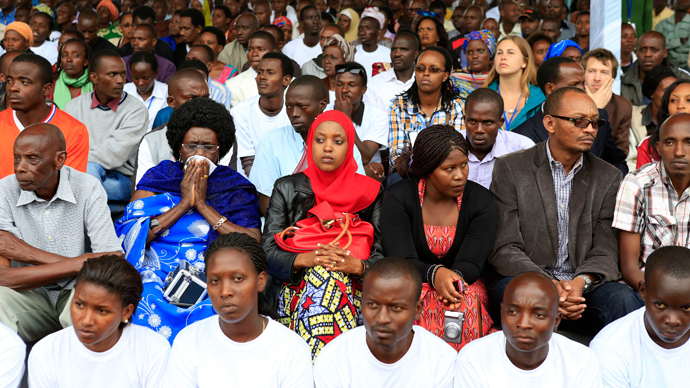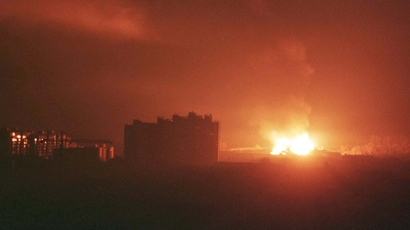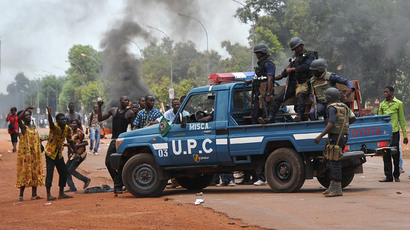France pulls out of Rwandan genocide commemoration after complicity accusations

France has pulled out of the 20th commemoration of the genocide in Rwanda following accusations by President Paul Kagame, who said France played ‘a direct role’ in one of the bloodiest events of 20th century.
The accusations were voiced by Kagame in an interview with the African weekly, Jeune Afrique, due to be published on Sunday. He said France had a “direct role in the political preparation of genocide and participation in its execution.”
France supported the Hutu-led government of Juvenal Habyarimana in Rwanda, helping to train and arm its military. After Habyarimana’s assassination, which escalated hostilities between Tutsi and Hutu to a full-fledged civil war, the Hutu-dominated military colluded with militias in the 100-day slaughter of Tutsi and moderate Hutus, which left between 500,000 and 1,060,000 million people dead, according to different estimates.
Paris also sent its military to carry out UN-mandated Operation Turquoise, aimed at establishing a safe zone in the country. Critics say it was meant to prop up the crumbling Hutu government, and helped many genocide perpetrators to escape the retribution of the advancing Tutsi rebel Rwandan Patriotic Front under Kagame command.

Tension between France and Rwanda over the issue has lingered for years, and the two countries had no diplomatic relations between 2006 and 2009. But during Nicolas Sarkozy’s presidential term there was a certain thaw, with Kagame visiting Paris in 2011.
Following Kagame’s comments, the French Foreign Ministry said they didn’t aid reconciliation prospects between the two countries. French Justice Minister Christiane Taubira, who was supposed to head the French delegation at the commemoration event on Monday, will not visit Rwanda due to the rumpus.
Commenting on the French demarche, Rwanda’s Foreign Minister Louise Mushikiwabo said Paris must face a “difficult truth” regarding its role in the genocide.
The government of Belgium, the former colonial power controlling Rwanda, which had a peacekeeping force at the time the bloodshed started and was also mentioned by Kagame as a culprit in the genocide, said it will still send a delegation. Unlike France, Belgium apologized to Rwanda for failing to prevent the atrocities.
The Rwandan genocide, which started on April 6, 1994, after a plane carrying Habyarimana and his Burundian counterpart Cyprien Ntaryamira was shot down by two anti-aircraft missiles, was among the worst humanitarian catastrophes of the last century. Official mourning for the lives lost 20 years ago began three months ago in Rwanda.
Apart from the direct damage the genocide did, it dealt a blow to the United Nations, which failed to act and stop the ongoing bloodshed, giving fuel to the supporters of the concept of “humanitarian interventions.” Its legacy is evident today, as humanitarian reasons are used and misused by countries pursuing their own geopolitical interests.

















